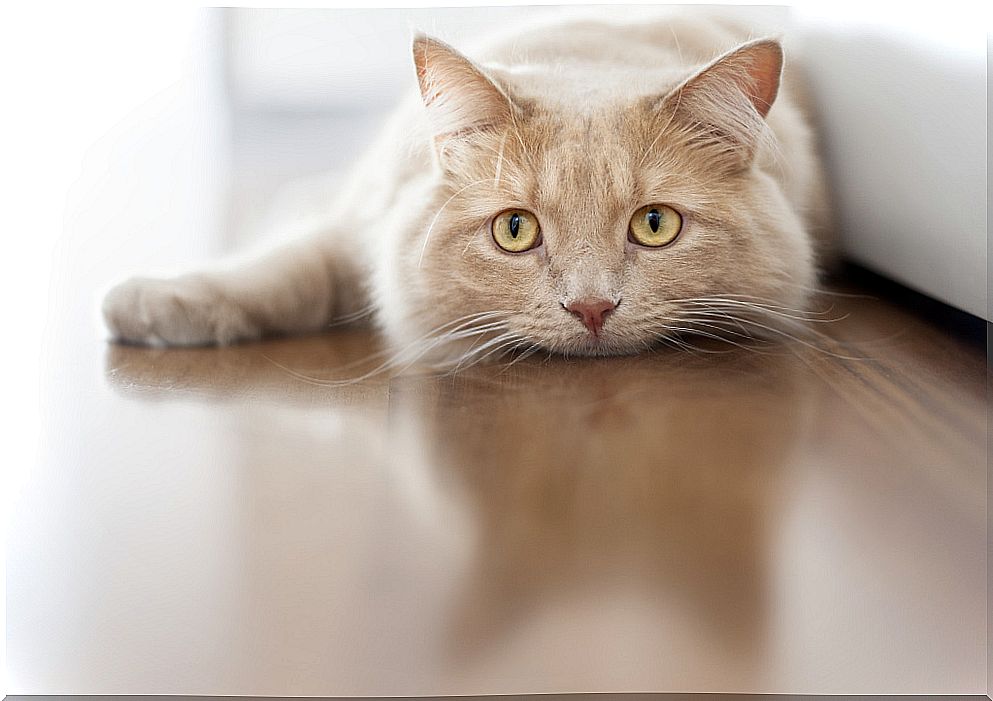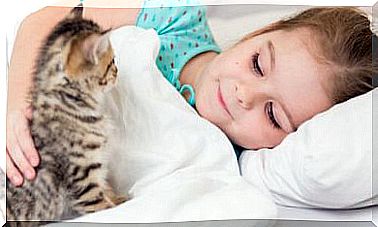Disease Symptoms In Cats

There are many health problems in cats. Many diseases are easily preventable, while others are hereditary. Below we will share with you some of the most frequent problems that can occur in our felines.
Some disease symptoms in cats
– Fur balls: it is one of the most recurrent problems. When cats lick their fur, they end up swallowing part of it.
Sometimes these hairballs lodge in the stomach, forming small balls. Cats tend to vomit them up, but don’t be scared: it’s normal for them to do so.
– Worms: Cats can often be infested with worms. Symptoms of parasites can include weight loss and vomiting.
If your feline has any of these symptoms, don’t think twice about taking him to the vet. Parasites can be treated with a few doses of medication.
If left untreated, they can cause serious health problems for your pet.
– Diarrhea: it is not a disease in itself, but a symptom that something is wrong with your cat’s health. It could be a minor problem or something more serious.
So, to be more relaxed, in this case it is always good to go to the vet.
– Urinary Tract Infections: Urinary tract infections are another very common health problem in cats.
This disease can present itself in both males and females, although males are more likely to develop them.
usual diseases

Fleas: feed on your pet’s blood and make the cat feel very uncomfortable. A severe infestation can lead to anemia and malaise.
Kidney disease: Kidney failure is the most common cause of death in adult cats. Long-term eating based on a dry food diet can cause this condition.
One symptom in animals that may be suffering from this disease is that they tend to drink a lot of water.
Conjunctivitis: Inflammation in feline eye membranes is a very recurrent illness. Usually the problem comes and goes. How to identify it? A cat’s eyes may be red, swollen and tearful.
Feline flu: is the name commonly given to a viral infection of the upper respiratory tract in cats.
It is a common disease and can be deadly in both kittens and adult cats.
Feline Stress: Cats are sensitive creatures and very prone to stress. To be alert, some of the symptoms of this malaise are: loss of appetite, excessive meowing and dissimulation, among other behaviors.
Feline Immunodeficiency Virus: Decreases the ability of the cat’s immune system to fight infections. Cats with this virus can remain symptom free for years.
However, at these times he contracts other diseases such as oral infections, upper respiratory infections, weight loss, ear infections, kidney diseases and many others.
The virus is transmitted through saliva, usually when the cat is bitten in a fight.

Feline leukemia: until recently it was the most common deadly disease among cats. However, if you vaccinate your pet, the probability that he will contract the disease is nil.
Lyme Disease: If your cat spends a lot of time outdoors, you should check regularly for ticks.
If you find a tick on your cat’s body, see your veterinarian for Lyme disease. It is transmitted to people and animals through ticks.
Some symptoms are: lethargy, reluctance to jump or climb stairs, limp or loss of appetite. The keys to dealing with this disease are prevention, early diagnosis and treatment.
Toothache in cats: The first symptom you may notice is your cat’s reluctance to eat. For him, any pressure on the tooth will be extremely painful.
There will come a point where he won’t even try to eat anymore. So always take care of your pet’s teeth and brush them regularly.
Bad breath in cats: Although a cat’s breath, under normal circumstances, is not the best in the world, you can certainly notice when it smells bad.
This malaise can be an indicator that something is not right with your cat’s health. If this is the case, refer to your trusted veterinarian.









